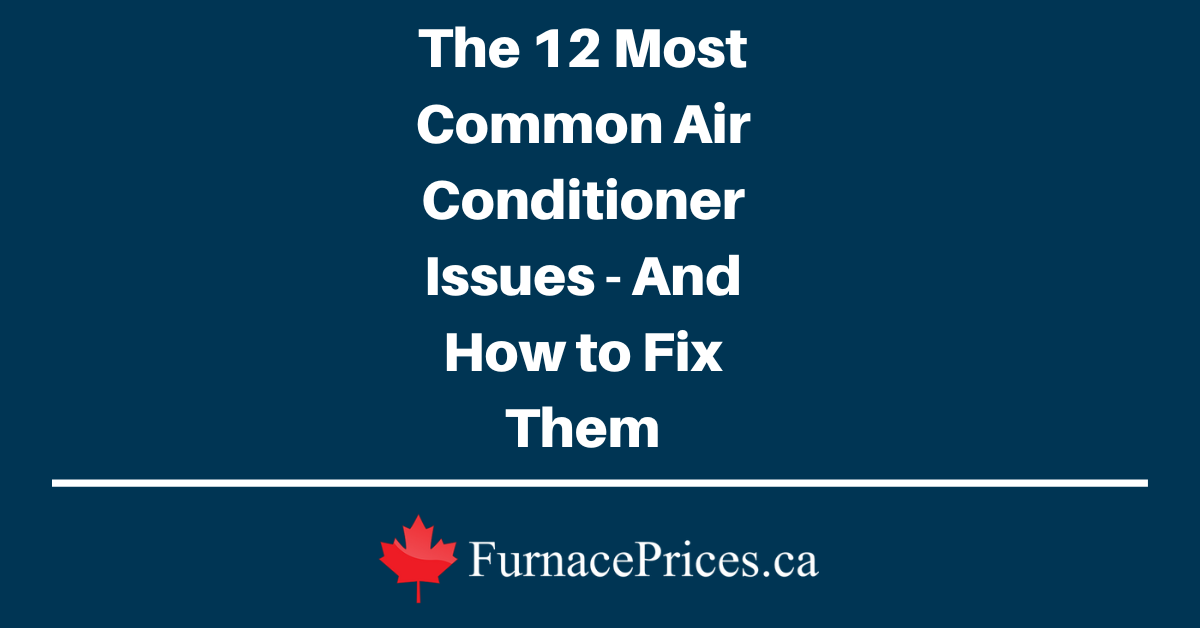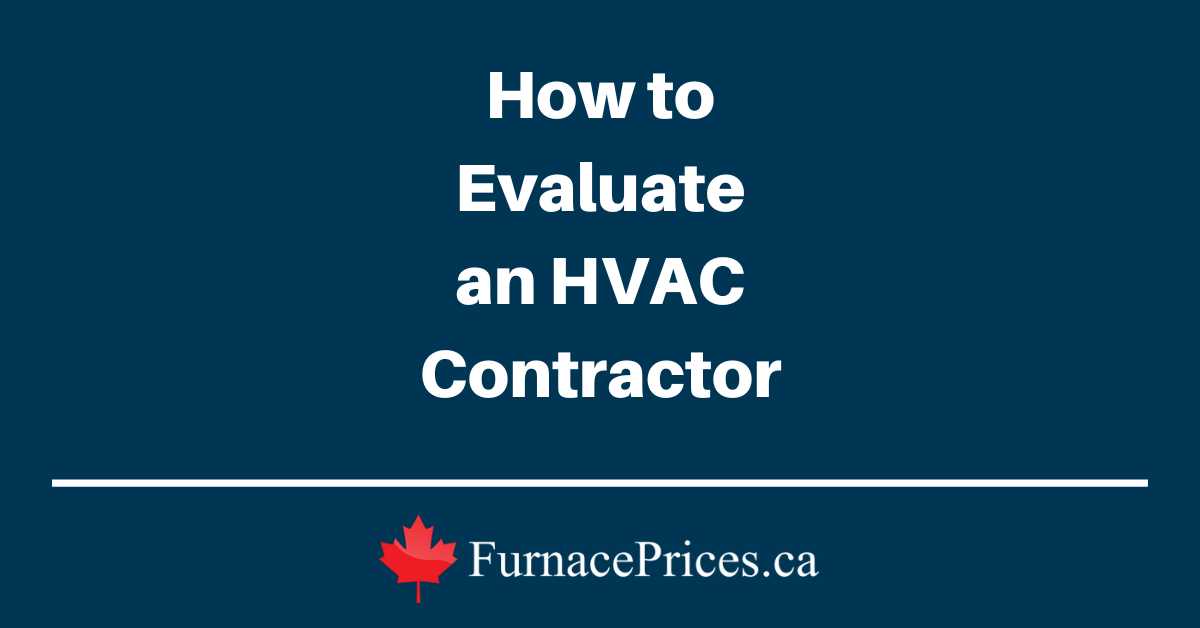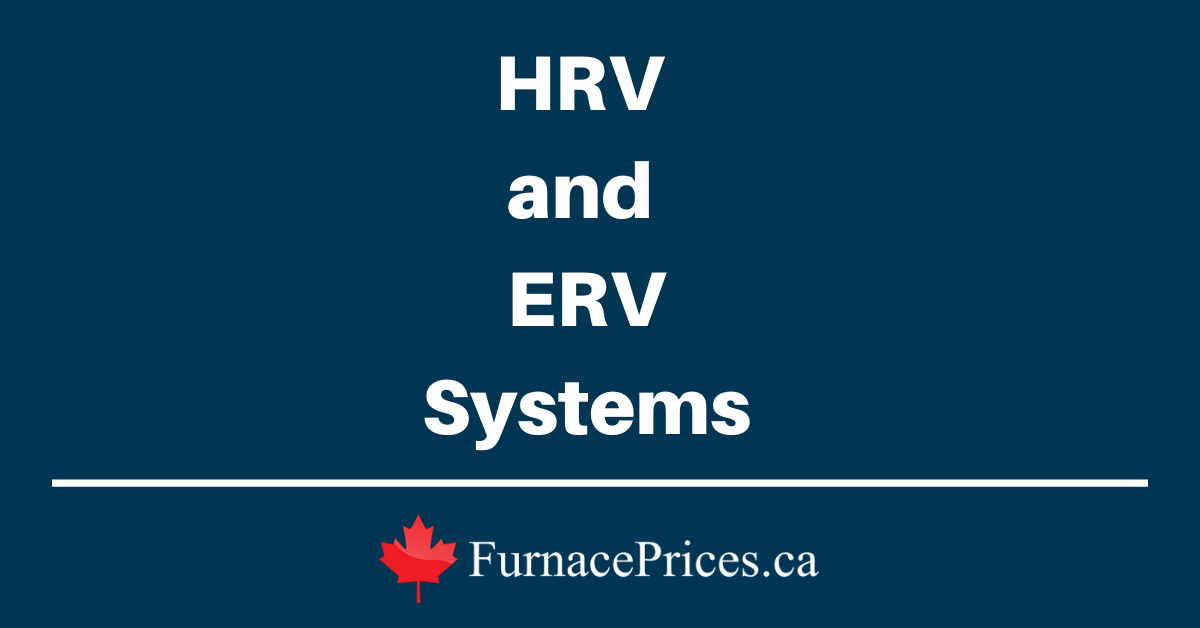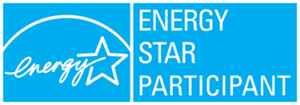A comprehensive guide to commercial HVAC, including what to look for in a contractor, expected costs, service and maintenance, warranty information, popular brands, types of commercial HVAC systems, knowing when to repair or replace a unit, and much more.
If you’re a business owner, or a property owner or manager/superintendent, dealing with the heating & air conditioning systems is usually an important and necessary part of the job.
Commercial heating & cooling systems are often more complex and costly than residential systems, so this guide will attempt to cover all the important details and information to help you manage, maintain, repair, or upgrade and replace your property’s heating and ventilation system.
When you do need HVAC service, there are lots of things you’ll want to know, including what qualifications a commercial HVAC company should have, what to budget for service, what to expect from a technician’s visit, the types of systems and brands that are available, what to look for in a warranty, and the types of properties that commercial HVAC technicians should have experience with.
Commercial HVAC and the Novel Coronavirus
With the Coronavirus pandemic raging across Canada and the world, upgrading and retrofitting commercial ventilation systems has become even more important and timely.
To increase safety and indoor air quality, building owners should consider adding or upgrading the HVAC system to increase air turnover and cycling the air more frequently.
It is also a good idea to consider adding HEPA grade air filtration systems with special sterilization add-ons which use a variety of methods including high heat and/or UV lights to kill viruses (like SARS COV-2) and other harmful pathogens.
What to Look for in a Commercial HVAC Contractor
Any time people go shopping, go to the dentist, go to work, stay in a hotel, or even go see a movie, it’s at a commercial building. Any of these buildings will have complex heating, air conditioning, and ventilation systems that keep the air fresh, clean, and comfortable in both summer and winter.
Commercial buildings, therefore, also need commercial HVAC technicians to install these systems and maintain them regularly with service and repairs.
Anybody who owns a commercial building or manages a commercial property will at some point require the services of a commercial HVAC contractor, whether it’s for installation, routine maintenance, repairs, or even emergency service.
The Differences Between Commercial and Residential HVAC
The job of a commercial HVAC technician is similar to that of a specialist working in residential HVAC, but there are some important differences. For one thing, commercial HVAC systems are larger and more complex, so they take more time and expertise to install and maintain properly.
The type of equipment also tends to be different, and the installation process is unique because commercial units are usually installed on rooftops.
Training and Certification for Commercial HVAC Contractors
The training and education process is slightly different for commercial HVAC because of the differences in the equipment and installation procedures. In Canada, each province has its own certification process, and typically students and apprentices will have separate training requirements for residential versus commercial work.
While there aren’t necessarily any ‘commercial HVAC’ licenses in many provinces, technicians will often have the highest level of gas license certification – like G1 in Ontario, for instance.
For the most part, each province requires HVAC technicians to go through an apprenticeship before they can get a license and work in the field. Further, commercial installers often have more advanced licensing requirements as well, particularly if they want to specialize in related systems.
Qualities to Look for in a Technician
When you’re looking for a commercial expert, focus on companies that have a long and established reputation in the business, years of experience, and the right tools and resources.
Here are some of the important things to look for in a commercial HVAC company:
- Technicians who are licensed and insured
- Training, education, and experience
- Excellent support and customer service staff to manage appointments and ongoing maintenance
- Established companies with a long history and track record
- Proper tools and equipment for commercial applications
- Great rapport with clients
- They provide a full range of services, including installation, routine maintenance, repairs, and emergency service
- Technicians and support staff who have experience cooperating with other tradespeople and decision-makers
- Experience working with different building and property types, including the type of building you have
- They understand the importance of getting the job done right with minimal interruption to business operations
What to Expect from a Commercial HVAC Technician Service Call
Whether you need maintenance, repairs, or emergency service, the first step in the process will be calling the company of your choice. Their support staff will ask questions to find out about what kind of building you have, what HVAC system needs attention, what the make and model are, and where it’s installed.
After that, they’ll schedule an appointment for an in-person visit with one of their trained specialists, who will do a thorough inspection of the unit, diagnose any current or potential problems, perform necessary maintenance, and complete any repairs possible.
If there is a larger problem that requires a part or unit replacement, then the technician may have to come back later to finish the job. Some companies offer regular maintenance service contracts, and the technician might talk to you about that if you’re interested.
Get Quotes
How soon are you looking to buy?*



Cost Estimates for Commercial HVAC Repairs, Service, and Maintenance Plans
The cost of commercial HVAC service will depend on so many factors that it’s not possible to give accurate quotes without a contractor assessing your specific situation.
New commercial boilers and rooftop HVAC systems can easily cost $15,000 – $25,000 and up plus installation – depending on the size of building – from light commercial to industrial grade.
Installation is also typically more complex, sometimes requiring a crane, which adds to the final price.
Service calls will likely run a few hundred dollars for a basic inspection, with costs going up by the hour depending on the issue, plus the cost of any parts needed.
Here are just a few of the things that could impact the cost of your service call:
- The type of service (for example, regular maintenance will generally be cheaper than an emergency call in the middle of the night)
- The unit being serviced, including its age, make, size, and model
- Where you’re located (such as rural versus urban)
- How much commercial HVAC competition there is nearby
- The type of building
- The unit’s installation location
- What components are involved with a repair or replacement
The maintenance service contracts we mentioned earlier generally cost between $150 and $500 per year (more on that later). Otherwise, when it comes to repairs, most commercial HVAC technicians charge for time and materials rather than having a flat-rate pricing scheme.
Should You Repair or Replace a Commercial HVAC Unit
Maintaining and repairing an HVAC system can be expensive, but replacing a commercial furnace or air conditioner is an even bigger investment. However, at some point, you will be faced with the decision to sink money into a repair or invest in a brand-new upgraded furnace or air conditioner.
There are several things to consider that will make this decision easier, and here’s what you need to know:
Age of the system: Commercial HVAC systems typically last between 15 and 20 years. So, if your system is on the newer side, around 10 years or younger, then it generally makes sense to put in the money for the repair. But once your system starts getting to the 10 to 15-plus year range, then it might be better to replace it, especially if the repair will be expensive.
Warranty: Commercial air conditioners, furnaces, heat pumps, and other products come with warranties that last anywhere from one to 20 years, so you should always check the terms to see if the unit is under warranty and what it covers before deciding to repair or replace (more on warranties in the next section).
Repair costs: There’s a general rule of thumb you can use here to help you choose between repairing and replacing: if the repair will cost 50 percent or more of what you’d pay to replace the unit, then you should opt to upgrade. However, if the repair will cost 50 percent or less of a replacement, then it will most likely make sense to pay for the repair. Just be sure to consider the other factors as well, such as age and efficiency.
Tax deductions: Business expenses like capital purchases are a great way to offset profits when tax time comes along, so when you’re facing a potential HVAC repair, it’s a good idea to look at your books before deciding to repair or replace.
Business interruptions: Having to shut down a business for a major HVAC upgrade could cost you thousands of dollars, and the disruption that comes with such a project might not be worthwhile. If you can get away with a repair, then it will likely cause less of an interruption and could save you a great deal of money.
Efficiency: Heating and cooling costs account for more than half of your energy bills. In fact, heating alone accounts for 55 percent of the energy costs in a commercial building. HVAC technology is improving all the time, and one of the main focuses for manufacturers is making units more efficient. By upgrading an older and less efficient furnace or air conditioner to a newer model, you could potentially save yourself thousands of dollars on your annual energy bills.
Workplace comfort: Commercial buildings rely on furnaces, air conditioners, and fresh air to keep employees, customers, tenants, and visitors comfortable. An HVAC system that isn’t working optimally could negatively impact your workers and people who visit the workplace, so if a repair might not be able to get the unit back to peak performance, then you should consider replacing it.
Workplace safety: As a commercial building owner or property manager, you are responsible for some aspects of workplace safety, including as they relate to the building’s HVAC system. For example, if you had a furnace problem that was creating a gas leak, then you’d have to fix the problem immediately before the building would be safe for employees or visitors. When the problem is such that a furnace repair might not be able to correct a safety issue, then a replacement is the option to go with.
Commercial Heating & Cooling System Warranties
Commercial HVAC products are like residential ones when it comes to warranties: each product will be different, each manufacturer will have different terms and conditions, and, generally speaking, the more you pay for a unit, the better the warranty will be.
Warranties also tend to cover different things, so a furnace, for instance, might have one warranty for parts and a separate warranty for the heat exchanger.
Here are some common limited warranty terms for commercial HVAC systems:
- Furnaces: 10 to 20 years for heat exchangers
- Furnaces, air conditioners, rooftop air conditioners, and heat pumps: one to 10 years for parts
- Air conditioners, rooftop air conditioners, and heat pumps: five to 10 years for compressors
- Air conditioners and rooftop air conditioners: one to three years for coils
Routine Maintenance for Commercial HVAC Systems
As we mentioned, a typical furnace or air conditioner can last between 15 and 20 years, but getting the longest lifespan and most efficient performance requires regular maintenance and service.
These are some of the basic maintenance requirements to keep your HVAC system in prime working order:
- Changing the filters every three to six months
- Programming and calibrating thermostats
- Inspecting and cleaning the coils, cabinets, blower motor, and burner assembly
- Checking drain lines and ventilation for obstructions
- Lubricating fan motors and belts
- Inspecting the compressor, control boxes, switches, wiring, and heat exchanger
- Measuring refrigerant levels
- Testing safety controls
Staying on Top of Maintenance with Service Contracts
Service contracts are annual contracts that you pay a flat rate for, and in return the HVAC company agrees to perform certain maintenance during the year.
Maintenance service contracts can include tune-ups, inspecting and testing major components, changing filters, running diagnostics, and giving you an overview of the situation. Some plans might even cover labour and parts, but those are going to cost more than basic maintenance plans.
Get Quotes
How soon are you looking to buy?*



Commercial HVAC Types
The term commercial can be applied to a number of different building types and industries, and each of these has unique HVAC requirements. For example, a small office building and a massive warehouse for perishable goods are both commercial buildings, but they’re very different in terms of HVAC needs.
To accommodate the unique demands of these business types, there are also various categories of HVAC systems available, such as:
- Light commercial, which means small businesses like restaurants, neighbourhood shopping plazas, and small offices
- Commercial, which includes larger-scale businesses like malls, entertainment centres, large office buildings, and even airports
- Industrial and light industrial, which means for factories and businesses that manufacture and assemble goods
Commercial-Grade Furnaces
Commercial furnaces are much like residential ones in their function and how they work. Their job is to heat spaces during the cold winter months, so just about every commercial building in Canada needs a furnace.
Commercial furnaces work similarly to residential ones: gas or propane is ignited and the flames heat the heat exchanger, which warms the incoming air, which is then distributed throughout the building.
Air Conditioning Systems
Commercial air conditioners are also very similar to residential ones in that they remove heat from the air to cool your workplace in the summer. Because most of Canada gets hot and humid throughout the summer, most commercial buildings benefit from an air conditioning system, and especially ones that deal with perishable goods.
Ductless Systems
These are heating and cooling units that are designed for buildings that don’t have ductwork and ventilation systems to distribute air. Single outdoor units are connected to multiple indoor air handling units, and these can be used to heat and cool spaces.
Hydronic and Boiler Systems
Hydronic and boiler systems use heated water or steam to heat spaces, and some also have the capacity to use chilled water to cool the same space in summer. For heating, the water in the system is heated and then circulated through a system of pipes and radiators.
For cooling, there’s a separate chilled water loop that’s attached to a chiller or cooling tower that cools the water and circulates it through the system. This type of heating and cooling system is common in many types of commercial buildings, and especially multifamily residential ones.
Water Heaters
Water heaters are another HVAC system that are very similar in residential and commercial applications, and their purpose is to provide hot water for the building.
While different businesses have various uses for hot water, all commercial buildings will need a water heater, even if it’s to provide hot water for employees to wash their hands, cook, and do dishes. There are both traditional and tankless water heaters for commercial applications, and either style can use gas or electricity to heat the water.
Water Purification
There are several water purification systems that use different methods to purify the water, including:
- Demineralization
- Reverse osmosis
- UV disinfection
- Micro, nano, and multimedia filtration
- De-alkalization
In commercial buildings, the purification is usually whole-system filtration, meaning all the water used in the building is purified before use (as opposed to having a purification system attached to individual faucets). Water purification is important in commercial buildings with high water consumption rates, or that have a need for pure water.
Refrigeration
Commercial refrigeration systems are contained spaces that are designed to remove heat from items stored inside, and they’re important for applications where perishables, foods, medicines, and other items need to be kept cold. They can come in the form of walk-in refrigerators and freezers, spiral freezers for immediate freezing, reach-in refrigerators, deli cases, chilled display cases, and more.
Packaged and Rooftop Units
Whereas residential air conditioners typically have an indoor unit and an outdoor unit, most commercial air conditioning systems are called packaged units. This means all the components—including evaporator and condenser coils, compressors, and fans—are all contained in a single outdoor unit.
Rooftop units are a type of packaged system, and these are air conditioners that get installed on the roof of a building and pump air into the building’s ventilation system. Many of these systems can even provide heating and cooling, so they’re ideal for many different large commercial buildings.
In Canada, most of the hotels and restaurants around the country use these packaged heating and cooling systems.
Commercial and Industrial Ventilation and Exhaust
There are plenty of exhaust and ventilation systems available for different types of commercial buildings. This includes anything from simple fans to complex exhaust systems attached to ducts. The more complex systems can remove smoke and gases from areas, provide air circulation, bring in fresh air, remove stale air, and ensure a clean and healthy work environment.
Condo Packs
Condo packs are through-the-wall HVAC systems that are installed in an exterior wall to provide individual rooms and units with heat, air conditioning, or both. They are self-contained gas, propane, or electric units that are often used in condominium-style buildings and some industrial applications.
Air Handlers
Air handlers are the indoor components of a heating and cooling system, and they get paired with heat pumps. The air handler portion contains a blower motor, filter, evaporator coil, and electrical components.
In commercial applications, there are usually multiple air handling units inside to control the flow of air and maintain the correct temperature.
Moreover, commercial air handlers have many fan styles to accommodate different needs, and have various features that can be added, such as antimicrobial filters, to control things like bacteria, mold, humidity, and more.
Unit Heaters
Unit heaters are like the space heaters you might use in your home to warm small areas, but they’re on a much larger scale and come in a variety of styles.
For example, you can get smaller electric heaters that are ideal for rooms, or you can opt for larger indoor or outdoor gas-powered furnaces. One great thing about unit heaters is that even the furnace-style ones require minimal ductwork. They’re usually used in buildings with high ceilings or loading docks.
HRV and ERVs
Heat recovery ventilation and energy recovery ventilation are systems that remove stale air from inside your building and bring in fresh outdoor air. At the same time, they use heat from the air leaving the building to heat the air coming in to reduce energy use.
ERVs do the same thing, but they also recover some moisture from the air leaving. These systems are beneficial in commercial buildings where people spend many hours a day throughout the week, and spaces where it’s not always possible or convenient to open windows.
Multi-Zone Systems
Furnace and air conditioning systems can be single-zone or multi-zone. Single-zone systems have one set temperature for an entire building, whereas multi-zone systems can be programmed to have different temperature settings in different areas, or zones.
These systems have a wide range of commercial applications in just about every industry. For instance, an office building could have one zone for hotter south-facing offices and a different zone for cooler north-facing ones.
Also, a warehouse that deals with food that doesn’t require refrigeration might still need to have one section kept cooler than others. Similarly, a manufacturing facility might want zones for areas where the temperature is impacted by machinery.
Popular Commercial HVAC Brands and Manufacturers in Canada
| Ductless Systems | Gas and Electric Boilers | Rooftop Units | Tankless Water Heaters |
|---|---|---|---|
| American Standard | Daikin/Ariston | Trane | Rheem |
| Daikin | Navien/Biasi | Goodman | Ecosmart |
| Fujitsu | Viessmann/Electric Heating Company | Carrier | Takagi |
| LG | ACV/Firebird | Rudd | Stiebel |
| Mitsubishi | Ferroli/Grant | York | Noritz |
| Napoleon | Intergas/Johnson & Starley | Rheem | Bosch |
| Panasonic | Ravenheat/Mistral | Navien | |
| Goodman | Worcester Bosch/Vokera | Eccotemp |
Types of Commercial Customers
There are many different people who could be responsible for HVAC in a commercial building, including property managers, single-location business owners, multiple-location business owners, or people in charge of corporate decision-making.
No matter what type of commercial customer you are, HVAC is just one of your many responsibilities, and it’s crucial to find commercial technicians that you can trust.
Property managers: You probably don’t own the commercial building, but you are responsible for things like maintenance and operations. As a property manager, you might not be responsible for making purchasing decisions and buying new HVAC equipment, but you do have to know about maintaining the systems, arranging service calls, knowing when something is wrong, and liaising with occupants or tenants to make sure their needs are being met.
Single-location business owners: Whether you own or rent the building you operate from, you might still be responsible for HVAC on the property, and that means taking care of maintenance, getting service when necessary, and upgrading equipment when it needs to be replaced. Because you only have one location to worry about, HVAC might not be something you deal with all the time, and you might not be as familiar with the systems and their requirements.
Multiple-location business owners: When you own multiple commercial buildings, chances are the buildings and systems are different ages, and that means you might have to address HVAC responsibilities more regularly. As such, you’re probably more familiar with the systems and what maintenance they need and when, and you might even be better at recognizing problems. However, if each building has different needs and equipment, then there might also be a lot more for you to learn about.
Corporate decision-makers: If you’re a corporate decision-maker, then you might not even work out of the buildings that you’re responsible for making decisions about. If that’s the case, then you need to rely on people who occupy the buildings to tell you when things aren’t functioning as they should. And even when you’re working from the same building, you have responsibilities to shareholders as well as employees when it comes to capital expenditures and maintenance costs. Like all other commercial HVAC customers, it’s crucial that you have a reliable HVAC expert you can count on for service, maintenance, and advice.
Types of Commercial Buildings and Their Common HVAC Systems
Commercial building is an immense category of structures and applies to hundreds of businesses and industries, including buildings like warehouses, office buildings, schools, hospitals, malls, stand-alone retail stores, grocery stores, and so much more. These buildings all have different HVAC needs, so there are equipment types that are more common to specific businesses and industries.
Here are some of the most popular commercial HVAC equipment types and their common applications:
| HVAC System | Purpose | Common Application Examples |
|---|---|---|
| Furnaces | Heating | Offices, retail spaces, schools, hospitals, doctors’ offices, restaurants, multifamily apartments and buildings, and warehouses |
| Air conditioners | Cooling | Malls, gyms, community centers, warehouses, manufacturing facilities, schools, churches, hospitals, office buildings, grocery stores, labs, restaurants, distribution centers, and hotels |
| Ductless Systems | Air distribution | Bakeries, restaurants, coffee shops, art galleries, warehouses, bars, office buildings, and commercial buildings with multiple floors or walls |
| Water heaters | Heating water | Schools, hospitals, churches, galleries, grocery stores, restaurants, bars, clubs, warehouses, manufacturing facilities, airports, hotels, motels, and theatres |
| Water purifiers | Providing clean water | Labs, medical clinics and hospitals, commercial kitchens, schools, pharmaceutical companies, spas, salons, car washes, dry cleaners, zoos, and aquariums |
| Large boilers and hydronic systems | Heating | School and university campuses, high-rise office buildings, condos, hospitals, nursing homes, manufacturing facilities, hotels, restaurants, convenience stores, and other small stand-alone retail spaces |
| Package rooftop units | Heating | Hotels, restaurants, supermarkets, department stores, malls, large office buildings, warehouses, entertainment centers, movie theaters, and warehouses |
| Underfloor radiant heating | Heating | Condos, apartment buildings, offices, hotels, restaurants, malls, retirement homes, nursing homes, convenience stores, schools, and garages |
| Condo units | Heating and/or cooling | Condominiums, low-rise apartment buildings, high-rises, offices, and industrial buildings |
| Noise control systems | Reducing excessive sound | Recording studios, manufacturing plants, factories, assembly plants, breweries, woodworking shops, and metalworking facilities |
| HRVs and ERVs | Ventilation and clean air | Schools, offices, factories, medical buildings and healthcare facilities, community halls, arenas, casinos, manufacturers, garages, body shops, welding and fabrication shops, and metalworking facilities |
| Commercial unit heaters | Space heating | Garages, workshops, factories, manufacturing facilities, distribution facilities, and airplane hangars |
| Refrigeration systems | Refrigeration and freezing | Restaurants, kitchens, labs, pharmaceutical companies, food distribution companies, bars and pubs, food manufacturers, ice cream shops, butchers, delis, convenience stores, and grocery stores |
| Heat pumps and air handlers | Distributing air | Multifamily residential, hotels, hospitals, long-term care facilities, schools, universities and colleges, churches, recreation centers, libraries, and offices |
| Ventilation, fans, and exhaust systems | Ventilation and clean air | Manufacturing facilities, kitchens, hospitals, labs, welding shops, factories, garages, metalworking shops, auto body shops, and vehicle assembly plants |
| Humidification and dehumidification systems | Adding moisture to air or removing it | Museums, storage facilities, auto paint shops and manufacturers, labs and clean rooms, libraries, art galleries, pharmaceutical companies, greenhouses, tobacconists, and textile factories |
Building Codes and Commercial HVAC Permit and Licensing Requirements
When it comes to building codes, each province is responsible for their own guidelines. However, most jurisdictions use the National Building Code of Canada as a model when creating their own codes. They can also use the National Energy Code of Canada for Buildings as an example when coming up with guidelines for energy-efficient buildings.
That being said, there are things that many provincial building codes have in common, including mandating that HVAC systems and components must be installed according to good engineering practices.
Here are some examples of common building code guidelines for HVAC:
- The thickness of the metal used for ducts
- The size and type of fittings
- Types of filters that can be used
- Where certain units can be installed
- Clearance requirements
- Allowable materials for piping
Similarly, permitting requirements will differ not only from province to province, but also from city to city. To work as a commercial HVAC technician in Canada, you must complete an apprenticeship in the field, and must then obtain a certification of qualification from the provincial governing body.
Beyond that, some cities require additional licensing for residential and commercial HVAC experts, including Hamilton, Toronto, Mississauga, Edmonton, and Winnipeg. Contractors in Calgary and other Alberta cities must have a business license with the city. Further, some cities also require special permits to install HVAC equipment, including Mississauga (PDF), Edmonton, and Calgary.
Financing for Commercial HVAC Purchases
New HVAC equipment can cost a small fortune, and this is even truer with units that are for commercial use. However, HVAC is also an important investment that keeps your workplace clean, comfortable, and safe for employees, visitors, customers, and tenants.
Not every business is liquid enough to upgrade HVAC systems, and the good news is there are loan and financing options available through some HVAC companies, manufacturers, and loan companies.
There are many benefits to financing a commercial HVAC purchase, including:
- Flexible payment options
- Tax benefits and deductions
- Allowing you to afford a higher-quality and more efficient HVAC system that will save on energy bills
- Long- and short-term repayment plans
- Quick access to funds
- Competitive interest rates
Most of the commercial financing options are available directly through local HVAC companies, and the financing is generally in the form of a loan that can range up to $500,000 or more. You can usually bundle purchases as well, meaning you could use the loan to cover the cost of a new furnace or air conditioner, along with the cost of new ductwork, a better warranty, installation fees, and more.
There are also some HVAC manufacturers that offer financing options, as well as loan companies that have financing specifically for commercial HVAC purchases in Canada.
Commercial HVAC Rebates
Along with financing options, there are also plenty of rebates and incentives available through local, provincial, and federal governments. These are often designed to help individuals and businesses purchase HVAC equipment that’s more energy-efficient, but there are also simple rebates and deals available that could save you hundreds of dollars or more on a new HVAC component.
Top Canadian Cities & Regions for Commercial HVAC
Larger cities tend to have more businesses and industries, and consequently more commercial buildings. As such, commercial HVAC competition is usually better in the major cities and centers, including places like:
- Toronto
- The GTA, such as Oshawa, Pickering, Mississauga, Brampton, Whitby, and Burlington
- Hamilton
- Ottawa
- Winnipeg
- Edmonton
- Calgary
- Vancouver
FAQs
How often should I service commercial HVAC equipment?
Annual maintenance will help keep your HVAC systems in tip-top shape, but if they require additional maintenance or service, then it’s best to have them looked at immediately by a trained and certified technician.
What’s the capital cost allowance of HVAC equipment?
The capital cost allowance will depend on the type and age of the building and the equipment, but the capital cost allowance rate for most HVAC is 10 percent.
What are SEER and HSPF?
SEER stands for Seasonal Energy Efficiency Ratio, and it measures cooling output versus energy use. The higher the SEER rating, the more energy-efficient the equipment will be, and the lower your energy bills will be. HSPF stands for Heating Seasonal Performance Factor, and it is similar to SEER, but it applies to the efficiency of heat pumps.
Sources
- Commercial Furnace Replacement
- Lennox Warranty
- The Commercial HVAC Maintenance Checklist You Should Be Following
Get Quotes
How soon are you looking to buy?*











